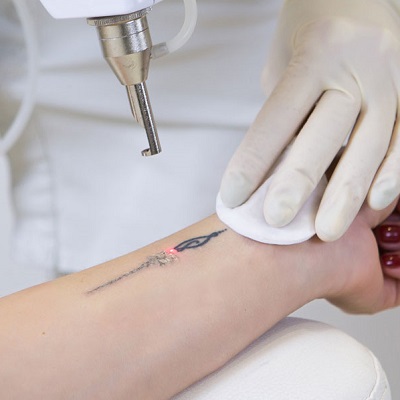Introduction
Tattoo removal has become increasingly popular as individuals seek to eliminate unwanted body art for various reasons, including changes in personal taste, lifestyle, or even professional requirements. Laser tattoo removal is considered one of the most effective methods for achieving this goal. However, several external factors can influence the success of the procedure. Two significant factors are smoking and sun exposure. Understanding how these elements impact Laser Tattoo Removal Muscat can empower individuals to make informed decisions and enhance their chances of achieving satisfactory results.
The Basics of Laser Tattoo Removal
Before delving into the effects of smoking and sun exposure, it’s essential to understand how laser tattoo removal works. The procedure utilizes specific wavelengths of light that target and break down tattoo ink particles in the skin. As the body’s immune system recognizes these smaller particles, it gradually eliminates them, resulting in a lighter or completely removed tattoo over several sessions.
Types of Lasers Used
Different types of lasers are employed in tattoo removal, with the most common being:
- Q-Switched Lasers: These are the most frequently used lasers for tattoo removal due to their ability to emit short, powerful pulses of light that effectively break down ink particles.
- Pico Lasers: A more advanced technology, pico lasers deliver ultra-short pulses that can target ink with greater precision and less heat, minimizing damage to surrounding skin.
Factors Influencing Tattoo Removal
While the type of ink, depth of the tattoo, and the individual's skin type are critical factors influencing the effectiveness of laser tattoo removal, external lifestyle factors like smoking and sun exposure can significantly alter the outcome.
The Impact of Smoking on Laser Tattoo Removal
Smoking is known to have numerous adverse effects on health, but it can also influence the healing process after laser tattoo removal.
1. Reduced Blood Circulation
Nicotine, a primary component of cigarettes, constricts blood vessels, leading to reduced blood circulation. This impaired circulation can affect the healing process following laser treatment. When blood flow is restricted, the body’s ability to transport nutrients and oxygen to the treated area diminishes, slowing down recovery and potentially compromising the effectiveness of the treatment.
2. Impaired Immune Response
Smoking also adversely affects the immune system, weakening the body’s natural defenses. A compromised immune system may struggle to eliminate the fragmented ink particles that the laser treatment aims to remove. This can lead to prolonged recovery times and potentially less satisfactory results.
3. Increased Risk of Complications
Smokers may experience more complications during and after laser tattoo removal. The risk of infections increases due to impaired healing, and smokers are more prone to developing scarring or hyperpigmentation, which can adversely affect the aesthetic outcome of the procedure.
The Effects of Sun Exposure on Laser Tattoo Removal
Sun exposure is another critical factor that can impact the results of laser tattoo removal.
1. Skin Sensitivity
After undergoing laser treatment, the skin is often sensitive and vulnerable to damage. Sun exposure can exacerbate this sensitivity, leading to issues like sunburn or irritation, which can hinder the healing process. If the skin is damaged, the effectiveness of the laser treatment may be diminished.
2. Risk of Hyperpigmentation
One of the significant risks associated with sun exposure after laser tattoo removal is hyperpigmentation. The treated area can develop dark spots or discoloration, especially in individuals with darker skin tones. This occurs because the skin produces excess melanin in response to UV exposure, complicating the removal of the tattoo and leading to uneven skin tone.
3. Increased Healing Time
Just as with smoking, excessive sun exposure can prolong healing time. The skin’s natural response to sun damage involves inflammation, which can delay the body's ability to clear away the fragmented ink particles, leading to prolonged treatment sessions and potentially unsatisfactory results.
Strategies for Minimizing the Impact of Smoking and Sun Exposure
1. Quitting Smoking
While quitting smoking can be challenging, it is one of the most effective ways to enhance the results of laser tattoo removal. Individuals are encouraged to stop smoking several weeks before beginning treatment and to maintain a smoke-free lifestyle throughout the entire process. This not only supports healing but also improves overall health.
2. Sun Protection
Protecting the skin from sun exposure is crucial during the tattoo removal process. Individuals should use a broad-spectrum sunscreen with a high SPF, wear protective clothing, and avoid direct sunlight whenever possible, especially during peak hours. Consulting with a dermatologist can provide additional strategies for protecting the skin during recovery.
3. Post-Procedure Care
Following the laser treatment, it is essential to adhere to a comprehensive post-care regimen, which may include:
- Keeping the treated area clean and moisturized.
- Avoiding strenuous activities that may cause sweating.
- Monitoring the area for signs of infection or unusual reactions.
Conclusion
Smoking and sun exposure are two lifestyle factors that can significantly affect the outcomes of laser tattoo removal. By understanding their impact and taking proactive measures to mitigate their effects, individuals can enhance their chances of achieving satisfactory results. Quitting smoking and protecting the skin from sun damage not only supports the healing process but also promotes overall well-being. For anyone considering tattoo removal, it’s crucial to engage in open discussions with qualified professionals about the best practices for achieving optimal results.





Comments